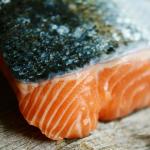Last month, comedian Russell Brand gave his YouTube followers a 17-minute lecture about Bill Gat
Food & Nutrition
If there's one thing everyone should know about science, it's this: what the evidence shows about a topic and what the public is told the evidence shows are often very different things.
“Are GMOs making you sick?” That's the question posed by the Institute for Responsible Technology (IRT) in an alarming April 2
Just six years ago, America was engaged in a ferocious debate over GMO food labels; March Against Monsanto could
“Let food be thy medicine, and medicine be thy food.” - Hippocrates
Introduced in the 1990s, crops genetically engineered (GE) to withstand exposure to the weed killer glyphosate (Roundup) were a game-changer for agriculture.
In March, anti-GMO groups across the US launched a last-ditch effort to halt the commercialization of AquaBounty's transgenic AquAdvantage salmon.
“If you are obsessed with sugar-sweetened drinks, then you need to think twice before having them regularly,”











